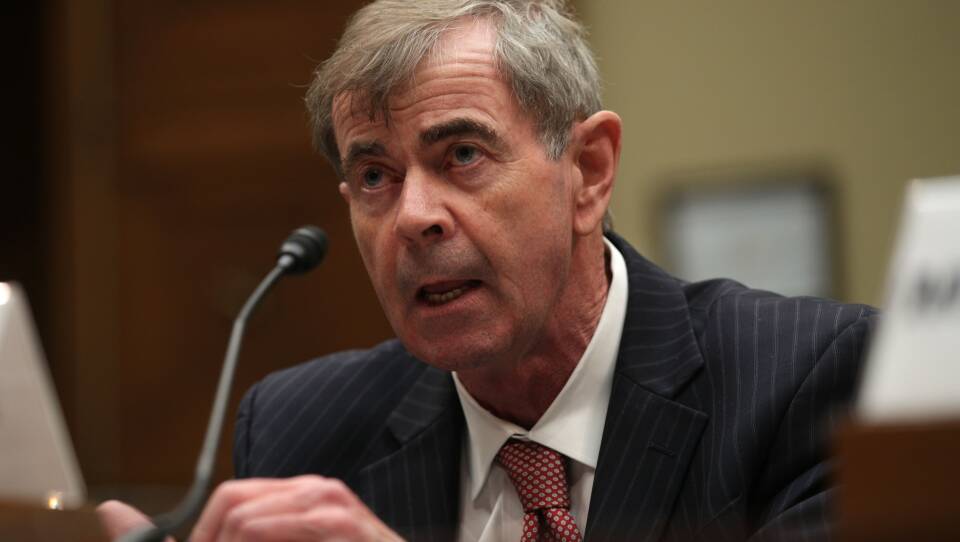With newly redrawn district lines in place and permanent voting reforms on the horizon, the 2022 statewide elections in Massachusetts are likely to be an historic affair.
But conducting those contests could pose a significant challenge, the state's top elections official said Tuesday, contending that Gov. Charlie Baker's proposed annual budget leaves his office "dramatically underfunded" and that redistricting fallout continues to pose headaches.
Secretary of State William Galvin, a Democrat, urged the Legislature's top budget-writers to pack millions of dollars more into a state spending plan for fiscal year 2023 to grapple with the rising paper, postage and administrative costs necessary to run smooth elections.
"All taken together, the election funds are dramatically underfunded, inadequate to conduct the election as I think we're all planning and expecting it to be," Galvin told the House and Senate Ways and Means Committees at a hearing on Baker's $48.5 billion budget.
Galvin requested an allocation of nearly $53.7 million for the divisions under his watch, significantly more than the $41.5 million Baker proposed for the secretary of state's office in his annual spending bill.
On the voting front, the secretary contended that Baker's budget underfunds the Elections Division by $3.55 million and the central voter registry by $1.7 million. Galvin said the proposed spending bill also falls $4.7 million short of meeting early voting costs and $1.45 million short of addressing printing and mailing costs for the annual voter informational packet, which will likely need several more pages than during the last cycle with four ballot questions on track to be decided at the polls.
Those possible financial gaps loom over an election season that is poised to play out in a new voting landscape.
While agreement on a voter registration reform bill remains out of reach, both the House and Senate have voted in favor of permanently enshrining mail-in voting and expanded early voting systems that proved popular during the pandemic.
Action on a final package would tee up the 2022 cycle as the first race for governor and other constitutional offices with those voting options — and the additional costs they carry — in place.
"The monies presented for early voting are clearly inadequate," Galvin said. "We really need to make sure those funds are there so the ballots can be printed and distributed as the law would envision at an early point in the process. It also has failed to reflect increases in paper costs. Paper has gone up dramatically over the last couple of years, up to a 30 percent increase."
Galvin said the election reform bills that are tied up in conference committee negotiations (H 4359 / S 2545) also call for his office to undertake two rounds of mailing ballot applications to voters, compared to the single round required in the 2020 cycle that was supported by federal funds.
The September primary election and November general election will be the first with newly drawn boundaries in place for all 160 state House districts, 40 state Senate districts, nine Congressional districts and eight Governor's Council districts.
Those political lines, which were set when Baker signed into law the redistricting proposals, pose what Galvin called "exceptional challenges" because they increased the number of municipalities divided into sub-precincts.
In some cases, Galvin said, cities and towns have had to readjust their precinct lines after their initial maps to reflect division of precincts across multiple House, Senate and Congressional districts.
"Normally, about 10 percent of our districts have sub-precincts. Now, it's a much higher percentage," Galvin said. "That means in each one of those precincts, we're going to have to print additional ballots with different names on it and have them available. In addition, we're going to have to have additional personnel at those locations."
Further fueling the secretary's concern is an impending move to slide the statewide primary date two weeks earlier to Sept. 6. Lawmakers included that change in a supplemental spending bill they sent Baker, who said Monday he intends to sign it .
Galvin said potential postal system delays are on his mind with the likely primary date now just under seven months away.
"All of this pushes the schedule even further forward, earlier into the year," Galvin said. "That is why these decisions and the disappointment we have with the governor's numbers is so great, because we are unable to make the commitments, do the ballot-printing, ordering and other aspects of getting ready for the election we'd normally do at this point in the cycle."
Rep. Aaron Michlewitz and Sen. Michael Rodrigues, who chair each branch's Ways and Means Committee, did not commit on Tuesday to fulfilling Galvin's entire budget request even as they stressed the importance of fully funding elections reforms.
"I wouldn't call it concerns yet since we haven't formalized our understanding of what the numbers need to be," Michlewitz said in an interview after the hearing. "But certainly, both branches supported mail-in ballots as a way to go about the 2022 elections, so we want to make sure we're funding it appropriately in whatever vehicle we decide to do that in."
"We are just beginning now to put together our budget recommendations," Rodrigues added. "We will have conversations with Secretary Galvin. We will ensure there is an adequate budget for him and his team to conduct fair elections and to conduct whatever is necessary to provide the voters and the constituents of the commonwealth every and all opportunity to cast their vote in these upcoming elections."
Lawmakers plan to collect testimony about Baker's budget bill for the next couple of months. The House unveils and debates its own version of an annual state spending bill in April, followed by the Senate in May.
Sam Doran contributed reporting.







